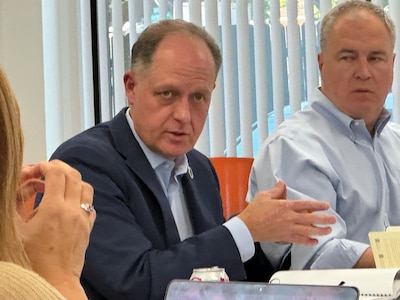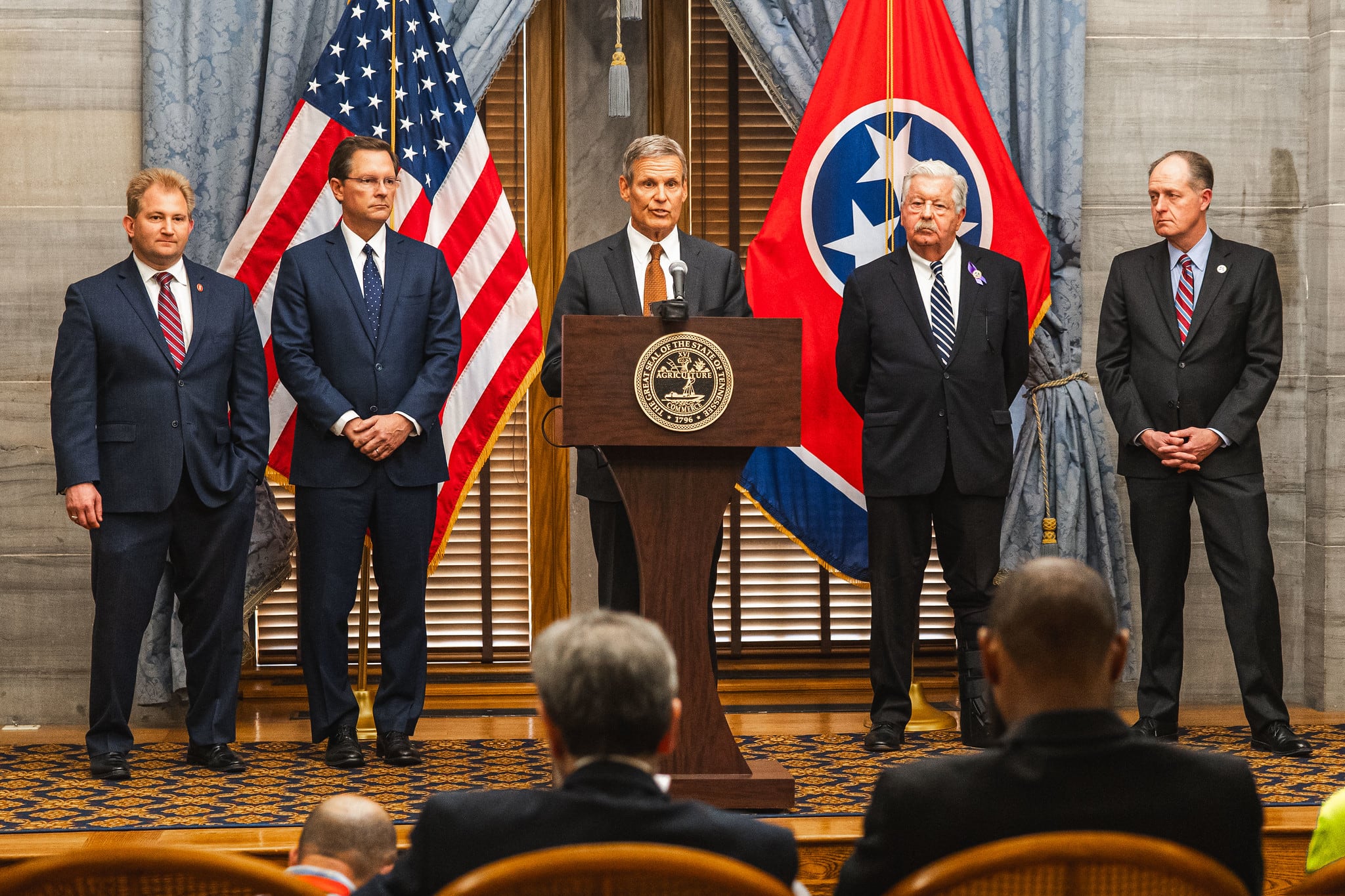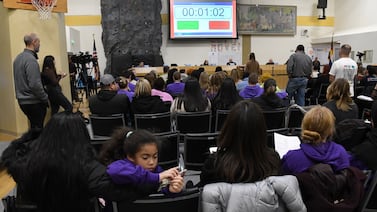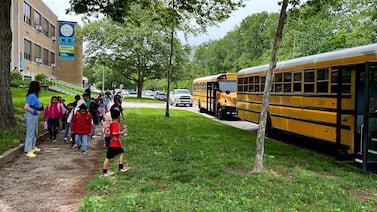Sign up for Chalkbeat Tennessee’s free daily newsletter to keep up with statewide education policy and Memphis-Shelby County Schools.
A new universal school voucher proposal will be the first bill filed for Tennessee’s upcoming legislative session, signaling that Gov. Bill Lee intends to make the plan his No. 1 education priority for a second straight year.
Senate Majority Leader Jack Johnson said this week that he’ll file his chamber’s legislation on the morning of Nov. 6, the day after Election Day. He expects House Majority Leader William Lamberth will do the same.
The big question is whether House and Senate Republican leaders will be able to agree on the details in 2025. The 114th Tennessee General Assembly convenes on Jan. 14 as Lee begins his last two years in office.
During the 2024 session, the governor’s Education Freedom Scholarship proposal stalled in finance committees over disagreements about testing and funding, despite a GOP supermajority, and even as universal voucher programs sprang up in several other states.
Sponsors in the Tennessee House, where voucher programs have had a harder time getting support from rural Republicans and urban Democrats, attempted to woo votes with an omnibus-style bill that included benefits for public schools, too. But Senate Republican leaders balked at the scope and cost of the House version.
On Monday, Johnson gave a voucher update to school board members in Williamson County, which he represents, on the development of new legislation.

Similar to last year’s proposal, the new bill would provide about $7,000 in taxpayer funds to each of up to 20,000 students to attend a private school beginning next fall, with half of the slots going to students who are considered economically disadvantaged. By 2026, all of Tennessee’s K-12 students, regardless of family income, would be eligible for vouchers, though the number of recipients would depend on how much money is budgeted for the program.
“The bill is not finalized, but we’re all working together with the governor’s office to come up with a bill we all can support,” Johnson told Chalkbeat after the presentation.
Testing accountability is among chief issues to settle
Johnson said the Senate’s 2025 bill will again include some type of testing requirement for voucher recipients — either state assessments or state-approved national tests — to gauge whether the program is improving academic outcomes.
However, the Senate bill will eliminate a previous provision that might have allowed public school students to enroll in any district, even if they’re not zoned for it. That policy proposal had been included at the insistence of Senate Education Committee Chairman Jon Lundberg, a Bristol Republican who lost his reelection bid in the August primary.
Lamberth, the House leader, did not respond this week to multiple requests for comment about his chamber’s plan, which in 2024 had no testing requirement for voucher recipients. Instead, the House version sought to dramatically reduce testing and accountability for public school students, including replacing high school end-of-course assessments with ACT college entrance exams.
The House bill also included numerous financial incentives to try to garner support from public school advocates. One idea was to increase the state’s contribution to pay for public school teachers’ medical insurance by redirecting $125 million the governor had earmarked for teacher salary increases.
Johnson told school board members the governor is planning a “substantial” increase for public education funding in 2025 but didn’t specify how much or for what.
“I think we’re going to have some things in there that will be great for all public education,” he said when asked later about including costly incentives such as teacher medical insurance funding. “Whether it’s in that (voucher) bill or if it’s in a separate bill is a great question. We will see. I don’t know the answer.”
Williamson County school board rescinds earlier anti-voucher resolution
Johnson told board members in his home district that he expects “nominal” impact to Williamson County’s two suburban school systems south of Nashville, if the bill passes the legislature in 2025. Most enrollees, he said, would be in urban areas that have more low-performing schools and private school options.
Later Monday, Williamson County’s board, including four newly elected members whose campaigns were supported by a conservative out-of-state political action committee, voted 10-2 to rescind a resolution passed by the previous board opposing Lee’s Education Freedom Scholarship Act.
The governor is from Williamson County and graduated from a public high school there in 1977. So it was significant when his local board voted in March to join more than 50 other school boards across Tennessee on record against his signature education proposal.
But Dennis Diggers, a new board member, argued that it was appropriate to revisit the issue given the recent election, and proposed rescinding the resolution.
“Four of the six candidates who won their election ran publicly for more than six months on this issue, so it was out there,” Diggers said. “I am not going to deny the parents in Williamson County the chance to help their kids.”
Meanwhile, a Tennessee policy organization that supports vouchers released a new poll showing 58% of the state’s voters are more inclined to support a candidate who supports letting parents collect public funding to choose where their child is educated, including public, private, charter, or home schools. The Beacon Center poll did not use the word “vouchers” in its question to voters, which tends to poll worse than language about “school choice.”
Universal vouchers would mark a major expansion of vouchers in Tennessee, where lawmakers voted in 2019 to create education savings account options for students in Memphis and Nashville. That targeted program, which has since expanded to the Chattanooga area, has 3,550 enrollees in its third year, still below the 5,000-student cap, according to data provided by the state education department.
A spokeswoman for the governor said his administration continues to work with both legislative chambers on a “unified” universal voucher bill to kick off discussions for the 2025 session. She also noted that $144 million remains in this year’s state budget for the program, even though lawmakers didn’t approve the bill.
“We remain grateful for the General Assembly’s continued commitment to deliver Education Freedom Scholarships to Tennessee families by keeping funding for last year’s proposal in the budget,” said Elizabeth Johnson, the governor’s press secretary.
Marta Aldrich is a senior correspondent and covers the statehouse for Chalkbeat Tennessee. Contact her at maldrich@chalkbeat.org.






